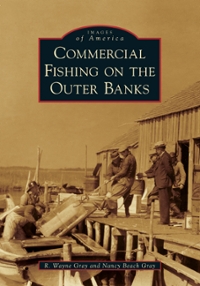Question
Directions:Each of the questions or incomplete statements below is followed by five suggested answers or completions. Select the one that is best in each case
Directions:Each of the questions or incomplete statements below is followed by five suggested answers or completions. Select the one that is best in each case and write the correct letter of your answer in the space provided for.
___1. An example of expansionary fiscal policy would be
A) cutting taxes.
B) cutting government spending
C) cutting production of consumer goods.
D) cutting prices of consumer goods.E) None of the above
___2. Open market operations are
A) the processes by which money enters into circulation.
B) reserves greater than the required amounts
C) the buying and selling of government securities to alter the supply of money.
D) rates of interest banks charge on short-term loans to their best customers.
E) None of the above
___3. Theuse of taxes and government spending to affect the economy
A. Monetary PolicyB. Fiscal PolicyC. Contractionary Policy
D. Expansionary PolicyE. None of the above
___4. A plan to reduce aggregate demand and slow the economy
A. Contractionary Fiscal PolicyB. Expansionary Fiscal Policy
B. Contractionary Monetary PolicyD. ExpansionaryMonetaryPolicy
E. None of the above
___5. If the federal government is attempting to encourage spending by consumers and businesses, a fiscal policy BEST serving this purpose would be
A. decreasing taxes.B. decreasing government spending.
C. reducing the investment tax credit.D. balancing the budget.
E. None of the above
___6. Theexpansion or contraction of the money supply in order to influence the cost and the availability of credit is
A. Monetary PolicyB. Fiscal PolicyC. Contractionary Policy
D. Expansionary PolicyE. None of the above
___7. When the Federal Reserve buys government securities/bonds on the open market, what effect does this action have on the nation's money supply and aggregate demand?
A. money supply increases; aggregate demand increases
B. money supply increases; aggregate demand decreases
C. money supply decreases; aggregate demand increases
D. money supply decreases; aggregate demand decreasesE. None of the above
___8. Monetary policies the Federal Reserve can adopt include all of the following EXCEPT
A. raising the discount rate.B. buying government bonds.
B. lowering the reserve requirement.D. raising personal income tax rates.
E. None of the above
___9. Which of the following is primarily responsible for the control of the money supply?
A. the Philippines' TreasuryB. Bangko Sentral ng Pilipinas
B. Philippinel Deposit Insurance CorporationD. the Comptroller of the Currency
E. All of the above
___12. Taxes that increase as income increases.
A. Progressive B. SinC. ProportionalD. EstateE. None of the above
___13. Which of the following is a monetary policy action used to combat a recession?
A) cutting taxesB. increasing the money supplyC. decreasing the money supplyD. raising taxesE. None of the above
___14. If the economy is in an inflationary period, what action would Fiscal Policy most likely take?
A. increase spendingB. decrease taxesC. Increase taxes
C. decrease the discount rateE. None of the above
___15. If Fiscal Policy is trying to promote stability and economic growth through tax cuts, what type of policy is Fiscal Policy using?
A. Tight Money PolicyB. Restrictive Policy
B. Easy Money PolicyD. Expansionary PolicyE. None of the above
Step by Step Solution
There are 3 Steps involved in it
Step: 1

Get Instant Access to Expert-Tailored Solutions
See step-by-step solutions with expert insights and AI powered tools for academic success
Step: 2

Step: 3

Ace Your Homework with AI
Get the answers you need in no time with our AI-driven, step-by-step assistance
Get Started


